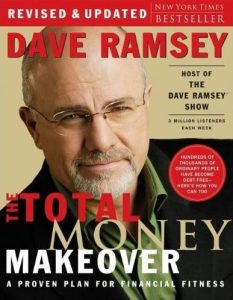Money matters for Valentine’s Day before you say ‘I do’
Money matters for Valentine’s Day before you say ‘I do’

Agnes Miranda, Executive Vice Chairman of World Financial Group
Crucial legal & financial matters you must discuss
By Michelle Chermaine Ramos
The Philippine Reporter
With Valentine’s Day around the corner, some might consider popping the question soon. But before you get engaged or married, it is vital for you and your partner to thoroughly discuss some legal and financial considerations before you say, “I do.” Family and real estate lawyer Rose Celiz of Celiz Law and financial literacy expert Agnes Miranda of World Financial Group weighed in on this subject. Both are mothers and successfully built their businesses with their husbands. With their decades of experience in marital bliss, we asked them what to consider before tying the knot and here are some key points they shared.
What red flags should you watch out for before you consider marrying someone?
“Use your head, not your heart,” Miranda says. She has observed how bad habits like uncontrolled spending and gambling addictions have led couples to disaster. Also, first and foremost, make sure that your partner is in fact single. There are many cases of OFWs working here and getting into relationships without disclosing the fact that they already have a spouse in the Philippines. “For example, if a couple has been in a relationship for a long time and the woman wants to get married but the man doesn’t intend to, it may be that he might not be free to legally marry. Before you get married here, you have to apply for a marriage license and if you’re a foreigner, you have to submit a certificate from your country, which would come from the Philippines, proving that you are not married there and therefore have the legal capacity to marry,” Celiz explains.

Agnes Miranda and late husband Manny in their younger years
Do you both have stable jobs or incomes?
“You can’t survive on love alone because it’s said that when hunger comes in, love is thrown out the window and budgeting becomes the cause of arguments,” says Miranda. She laughed as she recalled how she was taken aback when her late husband Manny asked her about her job and salary the first time they met at a friend’s party decades ago. “After we were married, he admitted to me that he decided that I was the girl he wanted to marry the moment he saw me. So he went straight into sharing details about his family, job and income.”
While she does not recommend such a direct approach upon meeting a potential love interest, she says that it is important for couples seriously considering marriage to discuss finances. Fortunately, she and Manny were already financially literate in handling their personal finances as individuals that they were able to effectively build their wealth as a team. Arriving in Canada as older immigrants, Celiz and her husband Robert worked together to acquire the necessary capital and Canadian job experience to open their law firm.
What standard of living do you want to have?
Beyond wedding expenses, you must discuss the lifestyle you plan to have. If you have children, will one of you stay home or will both work and hire a babysitter? If so, how much will that cost? “Budget planning is important for essentials such as where you will live, whether you will buy a house or rent, and for transportation. Discuss opening an account specifically to pay for expenses such as groceries, car payments, electricity, phones, etcetera and a separate account for savings. Some couples also have their separate accounts and agree on who is paying for what. What’s important is that you come to a mutual understanding of how to handle expenses, plan for future expenses and save,” says Miranda.

Family and Real Estate Lawyer Rose Celiz
and husband Robert at Celiz Law
Full disclosure of debts
Your debts prior to your marriage like student loans and credit cards are your personal obligation. However, they can also affect your financial situation because it’s difficult to move up financially if you are both working but the bulk of your spouse’s salary is going towards his/her debts and might lead to marital friction if undisclosed.
“Also, in the event that the credit card company files a case against your spouse and acquires a judgement in court, if you own property registered under both your names, even if you don’t own that debt, they can still go after the value of your spouse’s share of the property to pay it off,” Celiz explains. Miranda also advises couples to get rid of their debts before they get married so they can start their new life together with a clean slate.
Where will you live?
“Homes right now are expensive. Some couples opt to stay with their parents to save $1,500-$2,000 a month. But if they decide to move into their own home, they need to budget diligently,” says Miranda. Furthermore, from a legal perspective, if you own a residence prior to your marriage, it is still your separate property after you get married unless you both move in to live in it because it will then be your matrimonial home. “Once the property becomes your matrimonial home, even if your spouse’s name isn’t on the title, they will still have a right to an equal share of the property. If you personally bought and own rental property prior to your marriage, the property will remain under your ownership. However, whatever rental income it earns during the marriage will form part of your family property, which your spouse will be entitled to in the event of a separation or divorce.” says Celiz.
 Income from inherited or gifted properties
Income from inherited or gifted properties
Inherited or gifted properties are automatically protected without a prenuptial agreement. However, income from those properties is not protected unless specifically stated by the giver. Celiz explains, “In situations where one spouse’s parents gives the couple a home to serve as the couple’s matrimonial home, the parents can protect their child’s interests in a prenuptial agreement in the event of a separation by specifying that even if both partners live in the residence, the property or any income later derived from it are specifically given to their child and will not be part of the couple’s family property.”
When should you consider a prenuptial or cohabitation agreement?
You don’t have to be a millionaire to need a prenup. While this is far from romantic, it might be worth considering depending on your situation. The agreement serves to protect any significant properties or businesses you own prior to your marriage, in addition to properties both of you might acquire during your marriage. Also, as mentioned above, this is crucial to protect any income generated from inherited property in the event of a separation or divorce. “Whenever I prepare last wills and testaments, I include that provision that any income from any property that is given to my clients’ heirs shall be excluded from the person’s net family property. Otherwise, if no such provision exists, it can be included in the family property,” says Celiz.
How will you support your aging parents? Will you continue supporting extended relatives back home?
In-laws can be a source of tension for couples and you must determine early on if you agree on how you intend to take care of your aging parents in the future. Another sore point for many Filipinos is how extended relatives back home tend to have a sense of entitlement to their financial support with seemingly no expiration date.
Miranda says, “If you’re earning a salary and want to help your relatives, that’s fine. But couples need to be transparent with each other regarding how much money is coming in and going out so they can manage their budget.” She cites an example about setting healthy boundaries when one of her associates decided to get married. To sever this financial umbilical cord, the lady sent her extended relatives one large sum of money and told them that it was the final remittance and that they should use it to start their own business to grow the funds themselves.
 Do you have an emergency fund?
Do you have an emergency fund?
Couples tend to focus on saving for the wedding but not their emergency fund. “I advise that they each have their own separate emergency funds first in case they don’t end up together. This should be at least 3-6 months of your salary,” says Miranda. This will be a safety net should you fall ill or lose your job. Many marital quarrels also stem from when couples run out of money or when one partner is blindsided by their partner’s spending when there is no mutual understanding and agreement on how they should budget and save.
She and her husband Manny studied a collection of books which she credits for their financial success. One of her favorite Bible verses on budgeting and planning is Luke 14:28-30 which says, “Suppose one of you wants to build a tower. Won’t you first sit down and estimate the cost to see if you have enough money to complete it? For if you lay the foundation and are not able to finish it, everyone who sees it will ridicule you, saying, ‘This person began to build and wasn’t able to finish’.”
Miranda also recommends that couples read books like “Saving Your Future” by Xuan Nguyen, “Common Sense” by Art Williams, “Rich Dad, Poor Dad” by Robert Kiyosaki and “The Total Money Makeover” by Dave Ramsey. These should help spark detailed discussions about financial planning. She emphasizes, “the key is communication, honesty and transparency and of course, loving each other. But at the same time communicate, communicate, communicate.”
Comments (0)